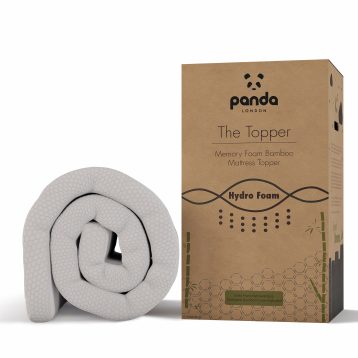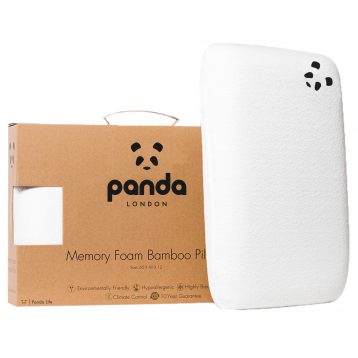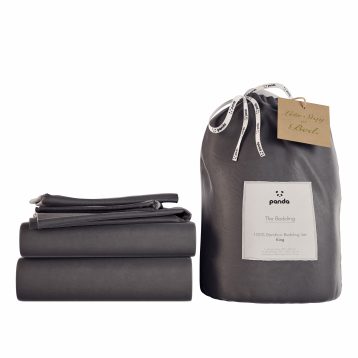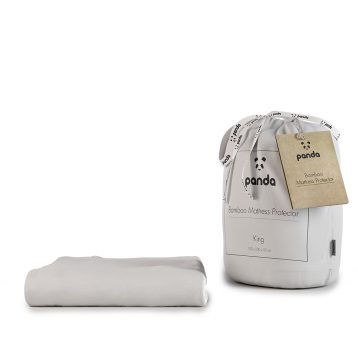Bamboo Duvets vs. Traditional Duvets: Which One Is Better?
Last updated on May 22nd, 2024 at 03:36 pm
A duvet is a vital part of your bedding set-up, providing you with cosy comfort all night long and helping you sleep soundly. No bed is complete without a duvet; let’s face it! There are plenty of different types available, from classic down or feather-filled to eco-friendly bamboo. With sustainable bedding growing in popularity, it’s no wonder bamboo duvets are becoming a key player in the industry. But what’s best for you? Snuggle up, read on and find out…
What are bamboo duvets?
Bamboo is a strong and durable fabric, made from the rapidly regenerating plant, and it has a whole range of benefits which we’ll dive into soon. The process of turning it from a plant into a fabric involves cutting the stalk into chips, which are then soaked until they turn into a pulp, and dried then spun. This ends as a fibre, which is what we use to make all of our deliciously soft bamboo bedding! When it comes to a bamboo duvet, they are soft and lightweight making them the perfect choice if you’re looking for a sustainable option.
Benefits of bamboo duvets
So what makes a bamboo duvet so great? There is a huge range of benefits that you’ll absolutely love. In particular, they’re super soft and breathable – you’ll feel cosy all night long, but there’s no risk of overheating on hot Summer nights because the air is able to flow freely. In addition to this, you’ll find a bamboo quilt is thermoregulating; this means it intuitively reacts to your temperature so you feel ‘just right’ from bedtime until the morning comes. Bamboo is hypoallergenic, too, so it’s perfect for those of us with sensitive skin and allergies! You’ll breathe (and sleep) a lot easier…
If you’re an eco-conscious shopper, bamboo is the perfect choice for you: it’s one of the most sustainable fabrics on the market, and the plant grows so quickly that turning it into gorgeous homeware has a really minimal impact on the planet. Not to mention, bamboo is incredibly durable too! Your duvet will last for years, meaning less bedding in landfill and less money coming out of your bank account. Easy to wash and keep clean, you won’t have to put too much time into care and maintenance either.

What are traditional duvets?
On the other hand, there are plenty of more traditional options on the market, too. These range from cotton and wool to synthetic fibres and feather or down-filled duvets. You’ll find these materials used in plenty of options!
Wool duvets are typically made by laying down a layer of cotton, covering that with a layer of wool – the thickness varies – then topping with another layer of cotton. The edges are then sewn together to give a finished product. Many duvets are made in this way, with cotton outer covers stuffed with various fills. Feather or down quilts, for example, are made in this way using feathers from either geese or ducks; these are known for their insulating properties.
Benefits of traditional duvets
There are many various benefits to the different types of traditional bedding options; for example, you’re able to choose from a huge variety of filling, weight, and warmth options. This allows you to personalise your sleeping experience. Thinking about warmth and insulation, down duvets, in particular, offer a lot of this – so if you’re typically a cold sleeper, this might be the way to go for you. Traditional options tend to be slightly cheaper than bamboo duvets, as the production process isn’t as complicated and the materials are more readily available. When it comes to the care and maintenance side of things, typically, it is recommended to wash duvets around once every 6 months. So it’s no more difficult with traditional types than bamboo!
Which is the better option?
It of course depends on you and your preferences, but there are some things we can look at to help you decide whether to go for bamboo or choose the traditional route.
Comfort and suitability
Think about suitability – do you want something super thick and warm, or are you looking for something breathable like bamboo? Are you after a year-round duvet? In that case, bamboo is a better option as it’s breathable and thermoregulating, making it suitable for every season. How soft do you want your cover to be? We might be biased, but bamboo is definitely the softest choice.
Health and allergies
Think about your health and any allergies you have; if you’re allergic to feathers or get itchy around wool, then these options won’t be right for you. Bamboo is completely hypoallergenic, and feels simply lovely on even the most sensitive skin.
Environmental impact
You might also be interested in the environmental impact of your bedding. Bamboo is, compared to traditional fill materials, one of the most eco-friendly duvet options on the market. Using feather or down is harmful to animals, changing the ecosystem of an area, and cotton requires a lot of water (and often pesticides) to grow in the quantities needed for fabric production. Synthetic fibres, of course, are typically much less kind to the planet – they tend not to be biodegradable, meaning they contribute to the landfill crises often associated with the bedding industry.
Cost-effectiveness
When thinking about cost, you should look beyond the initial outlay. Consider durability and lifespan of your duvet, and you’ll soon realise that paying a little more for a longer-lasting option is the best way to go! Bamboo might seem to have a higher price tag, but with all of the aforementioned benefits and the durability of a bamboo duvet, it’s more than worth it. On the other hand, if you’re shopping on a really tight budget you may need to opt for something more traditional as these tend to be a lot cheaper.
Style and availability
If you’re shopping on the high street, you’ll find that the traditional materials are often much easier to get hold of as they’re currently more popular than eco-friendly options. However, a quick browse online will open you up to choices such as our dreamy Bamboo Cloud Duvet. Ordering online is simple and with free delivery, you’ll be sleeping soundly in no time. Bamboo duvets are also incredibly versatile, offering year-round comfort and a touch of style to your bedroom.
Conclusion
So which comes out on top? Bamboo is thermoregulating, breathable, soft and comfortable – and much kinder to our planet than traditional choices in the duvet world. Remember to always consider your personal needs and preferences when shopping for bedding, as you want to get the most out of whichever one you choose. Think about your budget, your health, and the way you sleep. Weigh up the pros and cons of each type, and figure out what will work best for you and your specific requirements.
Let us know what type you prefer, and whether you’ll be making the change to bamboo bedding for a glorious night’s rest!
Explore our range:
Bamboo Mattress Topper
Rated 4.97 out of 5£99.95 – £199.95Memory Foam Bamboo Pillow
Rated 4.96 out of 5£44.95100% Bamboo Bedding
Rated 5 out of 5£19.95 – £180.00Bamboo Mattress Protector
Rated 5.00 out of 5£19.95 – £50.00





